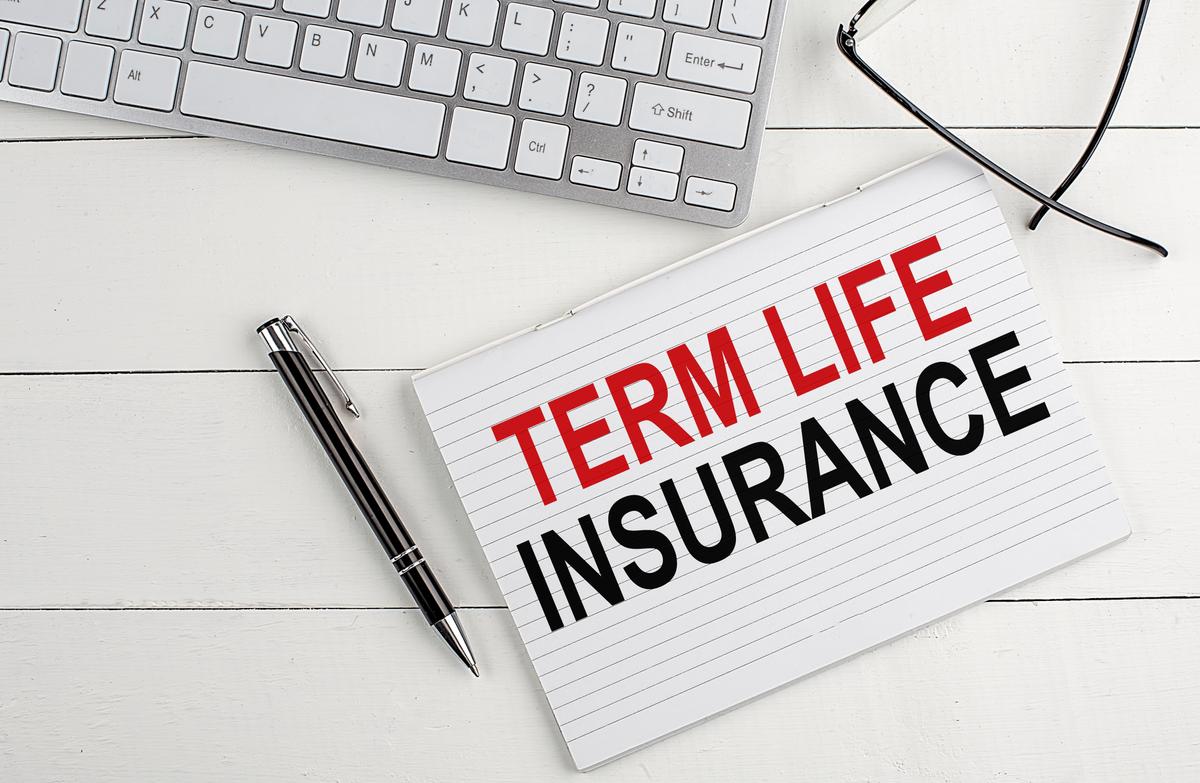We usually see a newbie wondering about life insurance and brainstorming to get the answers to various such questions as what is term life insurance? Is it better than whole life insurance? What are the types of term insurance? What benefit could I draw if I invested in term life insurance? If you are the one to get the answer to such questions, then let’s understand term insurance in a better and more in-depth manner to get all the answers.
What is Term Insurance?
Term insurance is a kind of life insurance that is crucial to the financial portfolio. They are straightforward life insurance plans that intend for pure risk coverage. They are also known as protection plans designed to protect the insurer’s family to fulfill the financial requirements after the policyholder’s demise.
It is known as a term plan because it protects the financial security of the family members of the insurer against a fixed premium paid for a specific period or term. In case of the policyholder’s death during the plan’s tenure, the insurance company pays the sum assured to the nominee. In case the insurer stays alive till the completion of the term of the insurance plan, then the policy will attain maturity, after which no benefit is paid to the policyholder.
However, no such thing suits all, so happened with term insurance as well. With the changing times and to accommodate the needs of people, there came different types of term plans to enhance the suitability of people. Let us dive deep into the details to understand the types of term insurance.
Types of term life insurance-
Level term plan:
A level term plan is the simplest form of a term insurance plan. Under this plan, the sum assured that is opted at the beginning will remain the same throughout the policy tenure. The death benefit is paid to the beneficiaries on the insured’s demise.
Increasing term insurance:
As the name suggests, this type of term insurance provides an option to increase the sum assured at the specific milestone of life within the policy’s tenure, but the premium amount will be of the same value. That is the reason why these policies come with higher premium amounts.
Decreasing term insurance:
Contrary to the increasing term insurance plan, under this plan, the sum assured keeps dropping every year at a predetermined rate with the increase of the age of the policyholder. It is based on the belief that with age and the passage of time, the liability of an individual decreases, and the need for a higher sum assured also decreases. The premium amount of these insurance policies is lower than other policies.
Return of premium term insurance:
Return of premium term insurance is an attractive plan as it offers back all the premiums paid by the policyholder if they outlive the policy tenure. This option is valid if the policyholder has not made any claim during the policy tenure.
Convertible term plan:
A convertible term plan allows you to convert the insurance plan into another type during further stages. If you presume that your financial priorities may change in the future, then you must choose a convertible term plan.
Term plan with riders:
These term plans come with the rider option where a policyholder gets the rider option like accidental death coverage, critical illness coverage, etc. Such a policy can be purchased with the usual term plan by adding a small amount to the regular premium
Benefits of Term Insurance
Following are the benefits of term life insurance
Substantial coverage at an affordable premium
The most significant and foremost benefit of term life insurance is its affordable cost. It is available at a reasonable premium amount when we compare it with other life insurance policies. Another essential benefit of term life insurance is that the earlier you buy it, the lower the premium for longer tenure.
Easily understandable
It isn’t easy to understand the terms of various life insurance policies, but it is straightforward to know when it comes to term life insurance. The insurance company covers the life risk of the insurer for a large sum assured for a fixed tenure, while the insurer has to pay a fixed premium. In case of the insurer’s demise during the policy term, the insurance company pays the sum assured to the nominee, and here, the policy gets terminated.
Numerous death benefit payout option
The death of the breadwinner policyholder, burdens the dependent family members to deal with various existing liabilities of the policyholder like loan or any other investments in any asset creation. The sum assured that the family members would receive help to bear all the aforesaid financial liabilities. Moreover, a few term policies offer the policyholder to opt for a monthly payout along with the lump sum amount, which could help the dependent deal with the regular liabilities and expenses in a better way.
Return of the premium
The basic term insurance plan offers no benefit other than a sum assured at the insurer’s demise. Still, if the insurer opts for the return of the premium option then the insurer might have to pay a higher premium but they will get a return of the entire premium if they survive the policy tenure.
Accidental death benefit coverage
Life is uncertain; accidents may happen in life which may cause death or disability. When we talk about term life insurance, if the insurer adds an accident death and disability rider to their term life policy, the insurance company offers additional term insurance benefits by covering the death or disability caused due to the accident. The best part is that the insurer can add accidental death and disability riders at any point in time, but the remaining term of the base policy should be at least five years.
Critical illness coverage
As discussed above, a term insurance plan offers rider add-ons to the policyholder. So, one can add on the rider of critical illness coverage to get a lump sum in case the policyholder is diagnosed with a critical illness. The policyholder can manage the ailment expenses without consuming other savings and funds.
Income tax benefit
As per the Income Tax Act 1961, the premium paid for the term insurance is Tax Deduction under section 80 C (up to ₹ 1.5 lakhs). Also, section 10 (10D) states that the death benefits and other payouts received through term insurance are tax exempted.
Choice of payout
The term life insurance beneficiary can choose the payout in three different ways.
1. Lump Sum amount
2. Monthly/annual income
3. A combination of a lump sum as well as a regular payout
Factors to Consider While Buying a Good Term Plan
Most of us are aware of the importance of insurance when it comes to financial planning. Among other several other assets, life insurance plays an equally important role. When everything else is going wrong, life insurance will make sure that your loved ones are not dealing with a financial crisis. One such form of life insurance is a term insurance plan. They are the easiest form of life cover and provide maximum financial cover for a small amount. However, with a plethora of term insurance plans in the market, it is difficult to choose one. So, to make your work easier, here is a list of factors to consider while planning for term insurance:
Determine the sum assured:
The most important part of purchasing a term plan is evaluating the amount of coverage. This might seem like a very easy thing to do but that is not the case. It is imperative to arrive at a sum amount which will be enough to meet your future demands. Under-insuring will fail the entire motive of purchasing a pure risk cover. The basic rule is to go for a sum that is at least 10 times your annual income. So, for someone earning Rs.10 Lakh now, the ideal cover is Rs.1 Crore.
Weigh your needs and budget:
In continuation of the first point, it is important to evaluate your present needs. There are varieties of factors that will change in the foreseeable future. For example inflation rate, lifestyle changes, etc. There is no guarantee that what you are spending today will be enough to meet your family’s requirements in the future. To make it simpler the best way is to use a term insurance calculator. It will help you in checking different combinations of premium and sum assured. This way you will be able to make changes in your financial planning to meet your future demands. Remember this tool can be used before purchasing the policy.
Choose the best insurance company:
The final step involves choosing the right insurance company. While it is difficult to decide on anyone, in particular, there are a few factors which can help you in choosing the best.
Claim Settlement Ratio:
This is a ratio that tells us the number of claims settled and the number of claims filed. Anyone who has a claim ratio above 95% would mean they have settled more than 95 cases out of 100.. A good company will have a higher claim settlement ratio. Look for Term Insurance Rider options. This will provide you with additional benefits. Find out the market reputation of the brand you want to select. Check for the solvency ratio of the insurance company.
Coverage Amount:
To begin with, always establish a coverage amount. This will narrow down a lot of things. To ensure an adequate amount of coverage consider aspects like your age, financial responsibilities, family’s future needs, expenses based on lifestyle habits, liabilities, inflation, and rising cost. These things will cover pretty much every expense you can account for. Ideally, the younger you are higher the cover amount.
Tenure of the policy:
Deciding the tenure of the policy is another key factor to consider. The term of the policy will decide the premium you have to pay. It cannot be changed once the policy has been bought. You can use a term life insurance calculator to check for different costs of premiums based on tenure. The earlier you start, the longer should be the tenure of the policy. Another point to consider while deciding the tenure of the policy is your retirement plan. Go for a tenure that is in sync with your retirement age. This will ensure that cover extends throughout your working period.
Payout Options:
The final amount of the premium will depend upon the frequency and payout options you select. There are several payment options offered by different insurance companies. Most of them offer payment options of a one-time lump sum amount a regular monthly income or a combination of both. Assess your needs and select the best payout options.
Mistakes that you should avoid while buying term policies
If you want to buy the best term plans you have to make sure that you avoid some common mistakes that people tend to make in this regard. The first such mistake is buying a cover that is not sufficient for your needs. The basic aim of buying such a plan is to make sure that your near and dear ones do not suffer any financial setbacks in your absence. Considering you are the main breadwinner in the family, this is the most selfless act you can do for your dependents. However, if you buy an insufficient cover amount the very purpose of buying such a policy is defeated.
Delaying the purchase of such a policy
A lot of people – especially in India – think that if they are fit and healthy they do not have to look for the best term insurance online. Well, the truth is that this is the best time to buy such a policy because this is when the insurer would charge you a low premium and offer you a much higher sum assured in return. This is especially true when you get the policy from a top service provider. The best time to buy such a policy is when you start earning.
Choosing a shorter coverage term
A lot of people think of long-term savings when it comes to buying a financial product such as term insurance. This is why they try to limit the period for which they get coverage in such a policy. They think that by doing so they are making a great decision. On the contrary, this is one of the worst decisions that one can take. This is especially true when they are the sole or main earners in their families with several people depending on them for their livelihood.
Providing wrong information while buying the policy
This is also a major mistake that a lot of people tend to make in these cases. They think that by withholding critical information like smoking & drinking habits, and the medical history of oneself and the family they would save a lot of money on the premium. This is true indeed but such acts invite a great deal of risk as well. What would happen if they die because of such causes and the insurer finds out? It would surely reject the claims of their nominees. In case the insurer finds it out during the coverage period it could cancel the policy as well.
Bottomline
As discussed in the above article, a term life insurance policy has numerous benefits, making it a mandate for every individual to invest. But one must remember that the ultimate purpose of the term insurance is protection and not saving.




